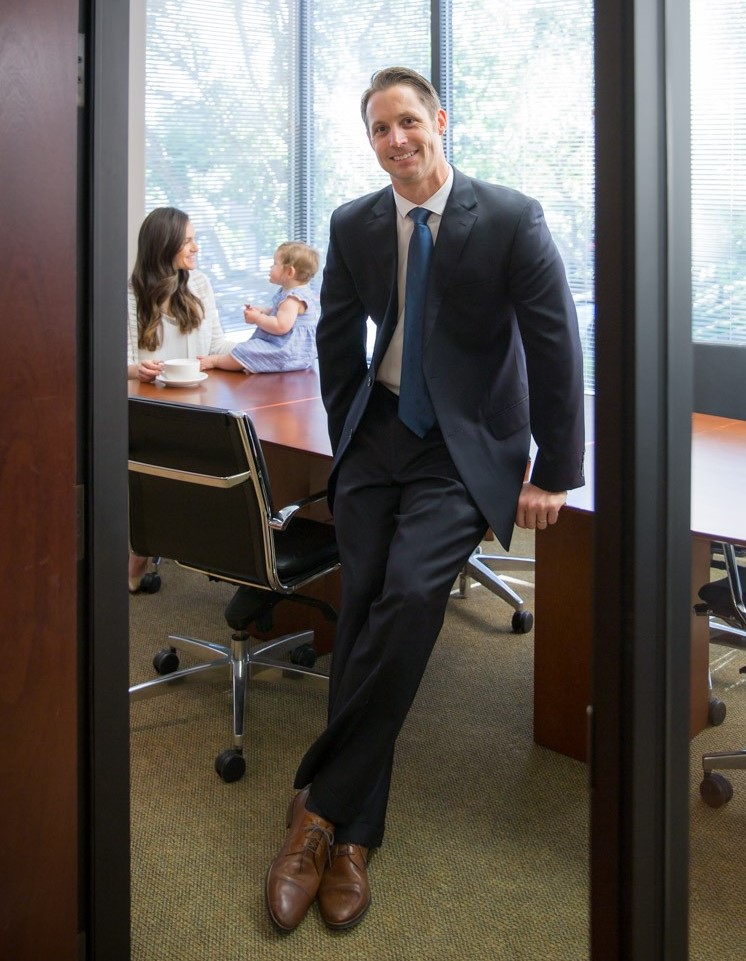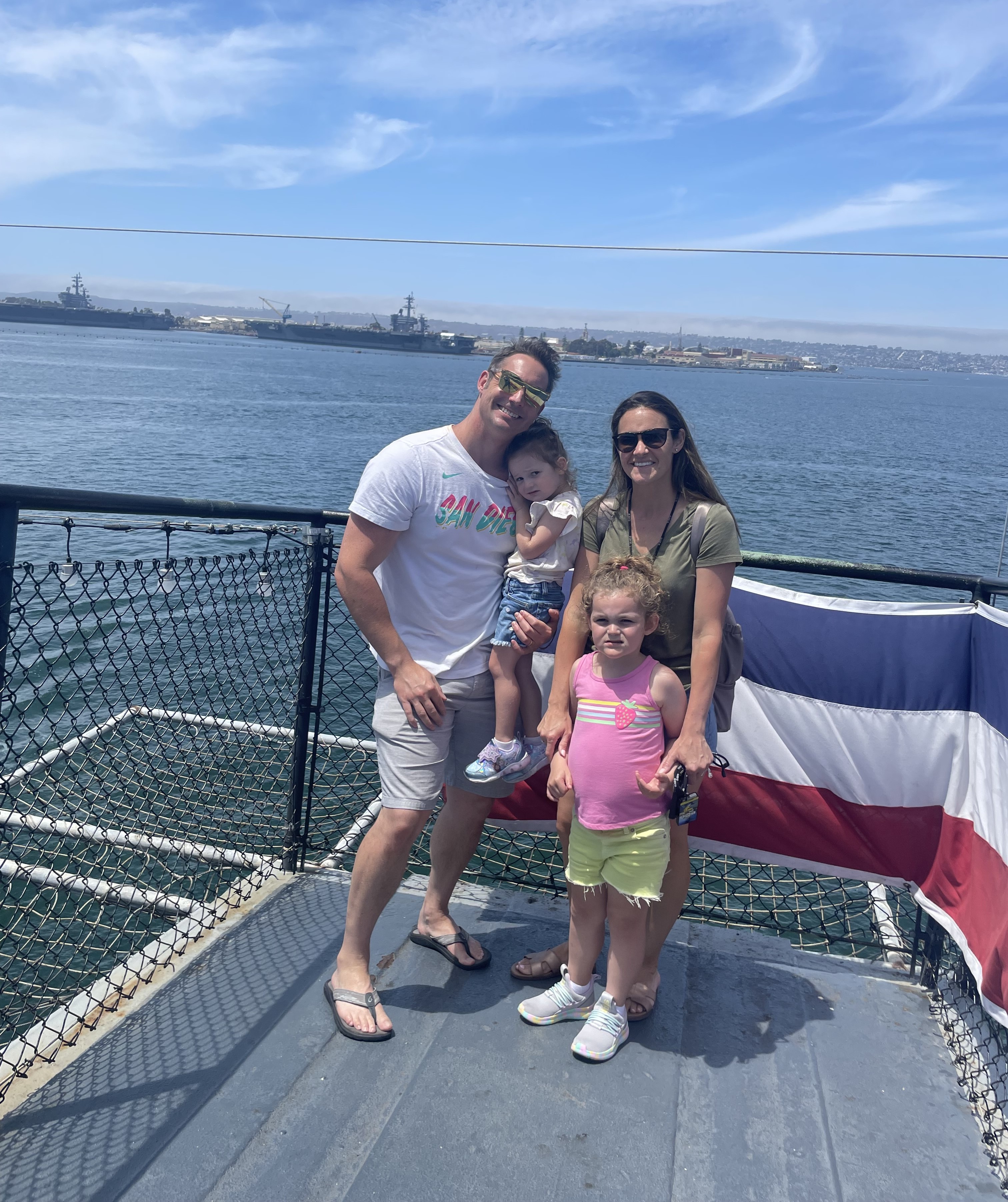Trust and estate planning lawyer takes a ‘no excuses’ approach to overcoming challenges
Articles
Attorney Spotlight
View more from News & Articles or Primerus Weekly
By Brian Cox
Attorney Brandon Spivack’s parents taught him a singular lesson about success that he has carried with him throughout life: He has no excuses.
His mother, Betty – who he describes as “insanely selfless and dedicated” – grew up in the South picking cotton and was pregnant with twins at the age of 20. But she let none of those challenges stop her from earning a college degree and an MBA and establishing a well-respected San Diego accounting firm with her husband, Neil.
“My mother and father always gave me the perspective that there were no excuses,” says Spivack, a partner at Brothers Smith LLP in Walnut Creek, Calif. “Things could get difficult, but I had every advantage in the world. I just had to put the effort in. And so, I’ve always thought that way.”
When Spivack was 12, his father had a major heart attack. Over the next year, as his father recovered and his mother took on the full weight of running the accounting firm, Spivack was largely responsible for getting himself to school and football practice. He also was preparing for his bar mitzvah, which requires a year of study and comes with its own pressures. It could have all been overwhelming, but Spivack drew on inner reserves of tenacity and determination to shoulder the demands.
“You just gotta do it,” he says. “That was my first gut check of: ‘You’ve got to get your stuff together and figure out who you want to be.’”
As an offensive lineman on the high school football team, Spivack was driven to excel and earn his place.
“I was a proud person, and I wanted to play,” he recalls. “I wanted to be one of the guys who contributed to the team. I wanted to compete, and so I really had to put in the work to do it.”
Though recruited by Ivy League programs, Spivack elected not to play collegiate football, choosing instead to focus his full attention on academics. Initially, he stayed fairly close to home, enrolling at the University of California, Irvine with the thought of becoming a doctor. However, he didn’t like the fit, and after the first year, he picked up and transferred clear across the country to the University of Miami in Coral Gables, Fla., where he knew no one but felt the balance of academic, athletic, and social scene was more up his alley.
“If I don’t like something, I’ll take control and change it myself,” he says of the decision to switch schools.
It wouldn’t be the last time he applied that mentality to his circumstances.
At the end of his sophomore year, Spivack faced another gut check: Medicine might not be his calling. He remembers talking to his father about how math and science weren’t clicking for him.

“It’s okay,” his dad said. “You just need to find something else that you like. You’re a smart kid. You’ll figure it out.”
It was excellent advice; Spivack turned his sights on law school.
He had met his future wife, Elizabeth, during undergrad. While she went to medical school, Spivack enrolled at the University of Miami Law School. He already knew he wanted to work in estate and sophisticated tax planning, and the law school was top-ranked nationally for its tax and estate program. It was a perfect fit.
After earning his J.D. and passing the bar in both Florida and California in 2011, Spivack moved on to gain an LL.M. while Elizabeth finished her medical degree. When she got the opportunity for a residency in San Bernardino, Calif., the couple returned to Spivack’s home state, where professionally he unexpectedly found himself caught in a Catch-22.
“I had a freshly minted master’s degree in tax and estate planning from the number one program in the country, figuring I could go wherever I wanted,” he says – but it wasn’t that easy.
What he discovered instead was that firms in San Diego and Los Angeles with high-net worth practices in estate and tax planning loved his degree but wanted him to have more experience. Go get some experience, they told him, and in five years we’ll come looking for you. On the other hand, while firms nearer San Bernardino found his credentials impressive, they had no need for someone with his expertise. It didn’t help that the country was still reeling from the Great Recession and jobs remained in short supply.
“I was stuck between a rock and a hard place,” he says. “It was very intimidating and scary for me because the traditional trajectory of a legal career was not working. So, I said I’m just going to have to make it however I can. I have to get creative with it.”
It was his mother who offered a solution to the dilemma. She suggested he come do tax returns for his parents’ accounting firm.
“You think you know tax law, but you’ve never actually put it to paper,” she told him. “You can do all the planning, but until you put it on paper and see the consequences of it, it won’t really resonate with you.”
So that’s what he did.
While most CPAs don’t get involved in fiduciary tax planning, Spivack’s mother cut her teeth in accounting and tax work at the start of her career with Bank of America where she was introduced to the trust and estates world.
“It was my mother who taught me a lot about trust and estates and tax law,” says Spivack. “She was the one who would tutor me on the foundations of it all. That’s why, when I came back to California, she was insistent that I not just think about it from an academic standpoint.”
To this day, Spivack is one of a very few trust and estate tax attorneys who will occasionally do his clients’ tax returns.
At the same time Spivack was working for his parents, his sister-in-law connected him with an attorney who was a certified specialist in estate planning, trusts, and probate. Spivack worked out an arrangement to work for the attorney part-time as her associate for free in exchange for her guidance and mentorship.
Within a year, Spivack got the call he’d been hoping for. He was offered a position with Gresham Savage, a leading business law, litigation, and real estate law firm that had been in San Bernardino for more than 100 years. Spivack felt his career was finally on track.
“It was a wonderful job,” he says. “I learned probate law. I literally did everything. It was a firm with a great eye for talent.”
While he didn’t do much ultra-high net worth planning at the firm, he did some and also became a certified specialist in estate planning. Over the next five years, he gained practical experience in working with clients, developed a backbone in probate, and honed his tax expertise.
And as they had promised, the bigger law firms came calling.
Spivack joined Hartog Baer & Hand, a Los Angeles-based, full-service trust and estate law firm founded in 1991. Co-founder John Hartog had written extensively about estates and trusts, including co-authoring a multi-volume treatise titled “California Wills & Trusts.” He was also chair of the American College of Trust and Estate Counsel (ACTEC), an organization of peer-selected trust and estate lawyers and law professors in the United States and around the world.
For Spivack, who held aspirations of joining ACTEC, the move was a “no brainer.”

“Estate planning, especially with ultra-high net worth clients, is puzzle solving,” says Spivack. “It’s always different issues coming at you. My clients are among the wealthiest people in the world, and they work on really interesting stuff and that’s exciting for me.”
In 2020, Spivack faced another hard reality. He and Elizabeth had just welcomed their first child. As an assistant chief of medicine, Elizabeth had challenging and demanding hours that resulted in both of them being away from home for long periods of time. Spivack decided to leave Hartog Baer & Hand to start his own practice and to take care of their new daughter, Olivia.
Three months after launching his own firm, the COVID-19 pandemic hit, and the world went on lockdown. It was a difficult time and Spivack once again had to draw upon his reserves of tenacity, determination, and creativity.
Wesley Smith, a principal partner at Brothers Smith LLP, reached out to him for contract work, happy to take as many hours as Spivack could give him. Over the course of that year, Spivack became more familiar with the firm and was impressed with its professionalism and culture. When Smith offered to make Spivack a partner, he jumped at the opportunity.
“Wes’s practice is amazing,” says Spivack. “The firm represents many patriarchs and matriarchs of wealthy families, and I see my role as continuing the relationship with the firm for their beneficiaries and working with their children who are my contemporaries. We’re trying to keep these relationships for decades.”
Spivack works every day to justify his clients’ trust in him.
“I’ve always had the mentality that you have to deliver results,” he says. “I establish trust by illustrating my worth. I don’t get scared by difficult questions. Clients want to know if you know what you’re talking about. And that’s how I’ve worked my way up. It’s because I do know what I’m talking about.”
He traces the roots of his knowledge and the source of his resilience and dedication to his mother, who passed in 2022, and his father, who died earlier this year.
“I feel very fortunate to do what I do,” says Spivack. “I am well aware that a lot of people put me in this position. I was able to persevere because I had a lot of people helping me. I had guiding stars.”